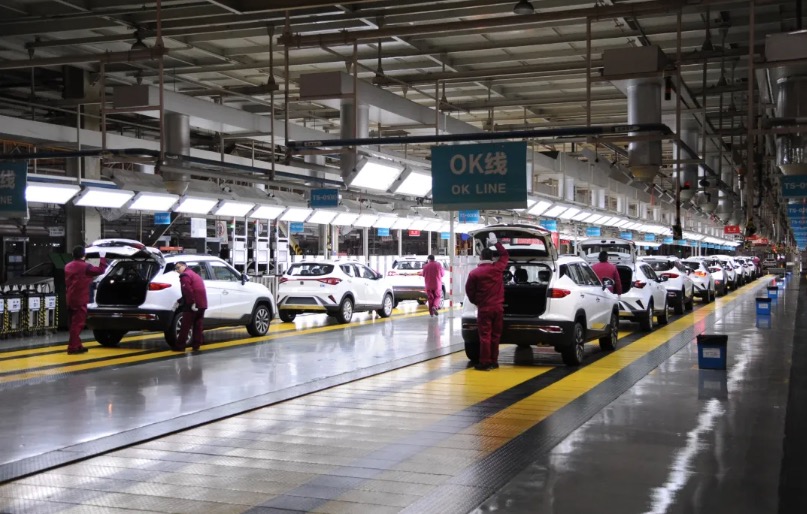On September 3, electric vehicle manufacturer Polestar released its financial report for the first half of 2025. The company reported a revenue of $1.423 billion, a 56.5% year-on-year increase, but incurred a net loss of $1.193 billion, a significant increase of 119.4% compared to the $544 million loss in the same period last year. Its gross margin stood at -49.4%, primarily impacted by a non-cash impairment charge of $739 million in Q2. As of June 30, 2025, Polestar’s cash position was $719 million.
The revenue growth was mainly driven by an increase in vehicle sales. Data shows that in the first half of 2025, Polestar sold 30,300 vehicles globally, up 51% from the previous year. While this growth rate is notable, the company still holds a relatively small market share, meaning it struggles to compete with leading electric vehicle manufacturers. The losses were largely attributed to U.S. tariff policies and heightened market competition. The U.S. tariffs on global trade partners have severely impacted the automotive industry, forcing companies, including Polestar, to adjust their supply chains and relocate production to mitigate the negative effects. The report shows that in Q2, Polestar’s loss was $1.03 billion, compared to a net loss of $268 million in the same period last year.
In the context of a booming global electric vehicle market, Polestar’s achievements in sales and revenue are overshadowed by the significant financial pressure it faces. The company is clearly grappling with serious financial challenges, and its future remains uncertain.
In response to Polestar’s escalating financial difficulties, Li Shufu, founder and chairman of Geely Holding Group, extended an emergency lifeline in June 2025, investing $200 million through PSD Investment. This infusion of funds has somewhat alleviated Polestar’s financial pressure and demonstrates Li Shufu’s confidence and support for Polestar’s future. Following this investment, Li Shufu, through PSD Investment and Geely’s Swedish subsidiary, now holds a 66% stake in Polestar, becoming the company’s majority shareholder. This move further strengthens Geely Holding Group’s control and influence over Polestar. However, the $200 million investment is merely a temporary solution to Polestar’s liquidity problems and does little to address its underlying debt crisis. By the end of 2024, Polestar’s total debt had already reached $7.383 billion. With significant debt repayment pressures, the company will face increasingly severe financial difficulties unless it can improve its operational performance and profitability.
Polestar’s current cash position is $719 million, which, given the financial strain, necessitates immediate action to improve its business performance, boost profitability, reduce costs, and optimize capital efficiency. Additionally, Polestar must strengthen collaboration with its shareholders to secure more financial support and resources for sustainable development. Without these efforts, Polestar will struggle to survive in the highly competitive market, let alone achieve its goal of becoming a leading global electric vehicle brand.
Amid pressure on both sales and finances, Polestar has initiated a major overhaul of its management team, aiming to reverse its current unfavorable situation. Since 2025, key executives, including the CEO, CFO, and COO, have been replaced, signaling Polestar’s determination to drive change. The new management team has set ambitious targets, planning to achieve annual retail sales growth of 30%-35% between 2025 and 2027, with a goal of turning a profit in 2025. This goal reflects the new team’s confidence and determination for the company’s future. However, achieving this target will be challenging. In the Chinese market, Polestar has already encountered difficulties, with business scaling back and sales disappointing. The company now only operates a single self-owned store in Shanghai.
For Polestar, 2025 is undoubtedly a year filled with both challenges and opportunities, and its future development remains uncertain. Li Shufu’s continued investment in Polestar clearly demonstrates shareholder support and highlights the company’s determination to break through its difficulties. However, relying solely on financial injections will not fundamentally address the core issues Polestar faces. The key challenge for the company is how to scale globally and control costs while reducing its investment in the Chinese market—this is the critical issue Polestar must address moving forward.



